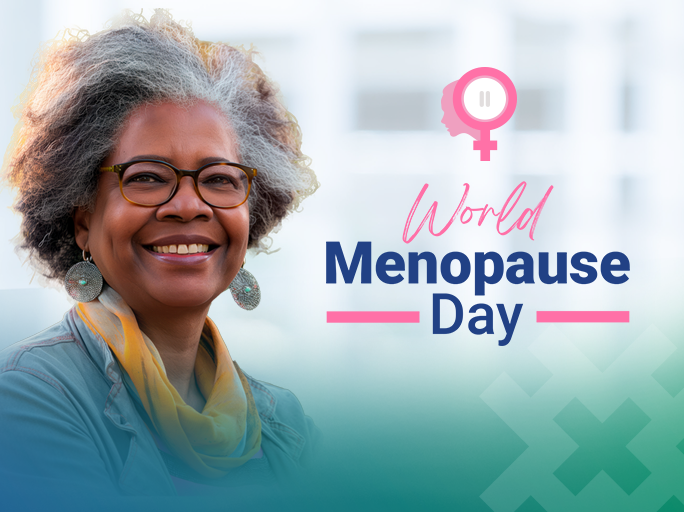2025, October 18
Understanding Menopause: A Natural Transition in a Woman’s Life

Dr. Angela Anzeze, a Consultant Obstetrician/Gynaecologist at the Kenyatta National Hospital, defines menopause as “the permanent cessation of menstruation for 12 consecutive months due to oestrogen deficiency, without other pathological causes.” She notes that while the average age of menopause in Kenya is 51 years, it may begin as early as in the late 30s.1
Menopause is preceded by perimenopause, a transitional phase where women may experience irregular menses and hormonal shifts, typically between ages 45–50 years. Once menstruation stops permanently, women enter post menopause. Dr. Anzeze adds, “In some cases, women experience premature menopause before the age of 40 due to genetic factors or autoimmune destruction of the ovaries.”
Causes of Menopause
Dr. Anzeze explains that as a woman ages, her ovarian follicles and hormone-producing cells decline, leading to decreased oestrogen and progesterone levels. In response, the body elevates follicle-stimulating hormone (FSH), which serves as a reliable diagnostic indicator.
Menopause may also result from surgical removal of ovaries, cancer treatments (chemotherapy/radiation), or medications for conditions like endometriosis. “Some drugs mimic menopausal symptoms even before natural menopause occurs,” Dr. Anzeze states.
Signs and Symptoms
According to Dr. Anzeze, nearly 75% of women experience vasomotor symptoms, such as hot flashes, night sweats and palpitations. “These episodes are typically brief but unpredictable and may worsen with stress, alcohol or exertion,” she reports.
Urogenital symptoms affect about 60% of women, manifesting as vaginal dryness, reduced libido and urinary issues. “Painful intercourse is common due to decreased vaginal elasticity,” she notes.
Psychogenic symptoms like irritability, depression, memory loss and sleep disturbance occur in 45% of cases. Physical changes, including skin wrinkling, weight gain and reduced breast size, are also common.
Treatment Options
1. Lifestyle Changes
Dr. Anzeze encourages a healthy diet and regular exercise to manage weight, bone density and cardiovascular health.
2. Osteoporosis Management
Treatment includes bisphosphonates and supplements like Osteocare, which contain calcium, vitamin D, magnesium and other bone-supporting minerals.
3. Supplements
Phytoestrogens, omega-3s and vitamin E help manage vasomotor symptoms. “Over-the-counter options like Menopace are beneficial, containing isoflavones and essential vitamins,” she notes.
4. Hormone Replacement Therapy (HRT)
“HRT is effective for symptom relief and prevention of bone and cardiovascular diseases,” Dr. Anzeze explains. However, she cautions, “It must be prescribed cautiously, as it may raise the risk of certain cancers and thromboembolic events. Specialist supervision is mandatory.”
Final Word
Menopause is a natural biological milestone, but its symptoms and risks require personalized care. Dr. Anzeze concludes, “Understanding the process and seeking timely medical support empowers women to manage menopause healthily and confidently.”
References:
Peacock K, Ketvertis KM. Menopause. [Updated 2018 Oct 27]. In: StatPearls [Internet]. Treasure Island (FL): Publishing; 2019 Jan-.
Peacock K, Carlson K, Ketvertis KM. Menopause. [Updated 2023 Dec 21]. In: StatPearls [Internet]. Treasure Island (FL): StatPearls Publishing; 2025 Jan-. Available from: https://www.ncbi.nlm.nih.gov/books/NBK507826/StatPearls
Kugajeevan Vigneswaran, Haitham Hamoda, The pathophysiology and management of menopausal symptoms, Obstetrics, Gynaecology & Reproductive Medicine, Volume 33, Issue 5,2023, Pages 135-140.
 Back to Blog
Back to Blog





